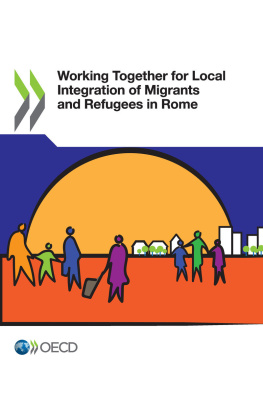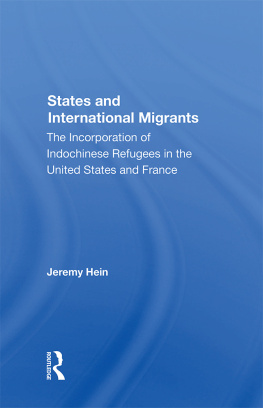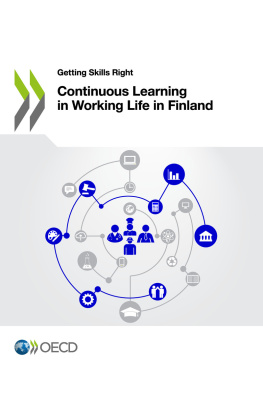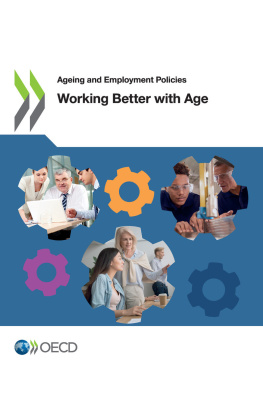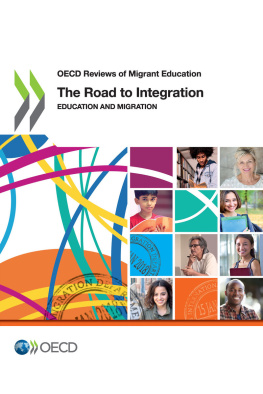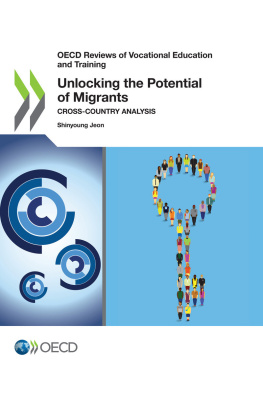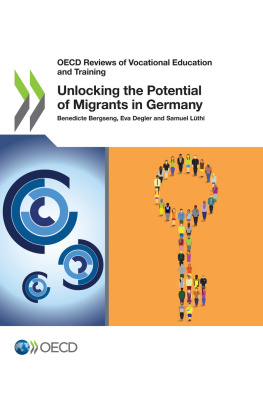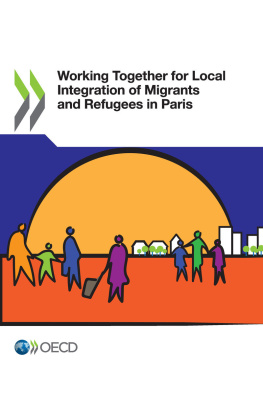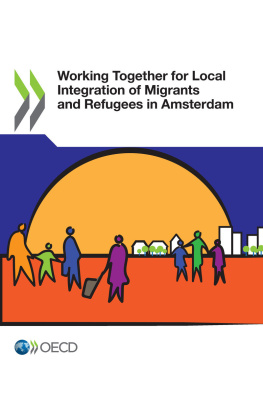OECD - Working Together for Local Integration of Migrants and Refugees in Rome
Here you can read online OECD - Working Together for Local Integration of Migrants and Refugees in Rome full text of the book (entire story) in english for free. Download pdf and epub, get meaning, cover and reviews about this ebook. year: 2019, publisher: OECD Publishing, genre: Politics. Description of the work, (preface) as well as reviews are available. Best literature library LitArk.com created for fans of good reading and offers a wide selection of genres:
Romance novel
Science fiction
Adventure
Detective
Science
History
Home and family
Prose
Art
Politics
Computer
Non-fiction
Religion
Business
Children
Humor
Choose a favorite category and find really read worthwhile books. Enjoy immersion in the world of imagination, feel the emotions of the characters or learn something new for yourself, make an fascinating discovery.
Working Together for Local Integration of Migrants and Refugees in Rome: summary, description and annotation
We offer to read an annotation, description, summary or preface (depends on what the author of the book "Working Together for Local Integration of Migrants and Refugees in Rome" wrote himself). If you haven't found the necessary information about the book — write in the comments, we will try to find it.
OECD: author's other books
Who wrote Working Together for Local Integration of Migrants and Refugees in Rome? Find out the surname, the name of the author of the book and a list of all author's works by series.
Working Together for Local Integration of Migrants and Refugees in Rome — read online for free the complete book (whole text) full work
Below is the text of the book, divided by pages. System saving the place of the last page read, allows you to conveniently read the book "Working Together for Local Integration of Migrants and Refugees in Rome" online for free, without having to search again every time where you left off. Put a bookmark, and you can go to the page where you finished reading at any time.
Font size:
Interval:
Bookmark:
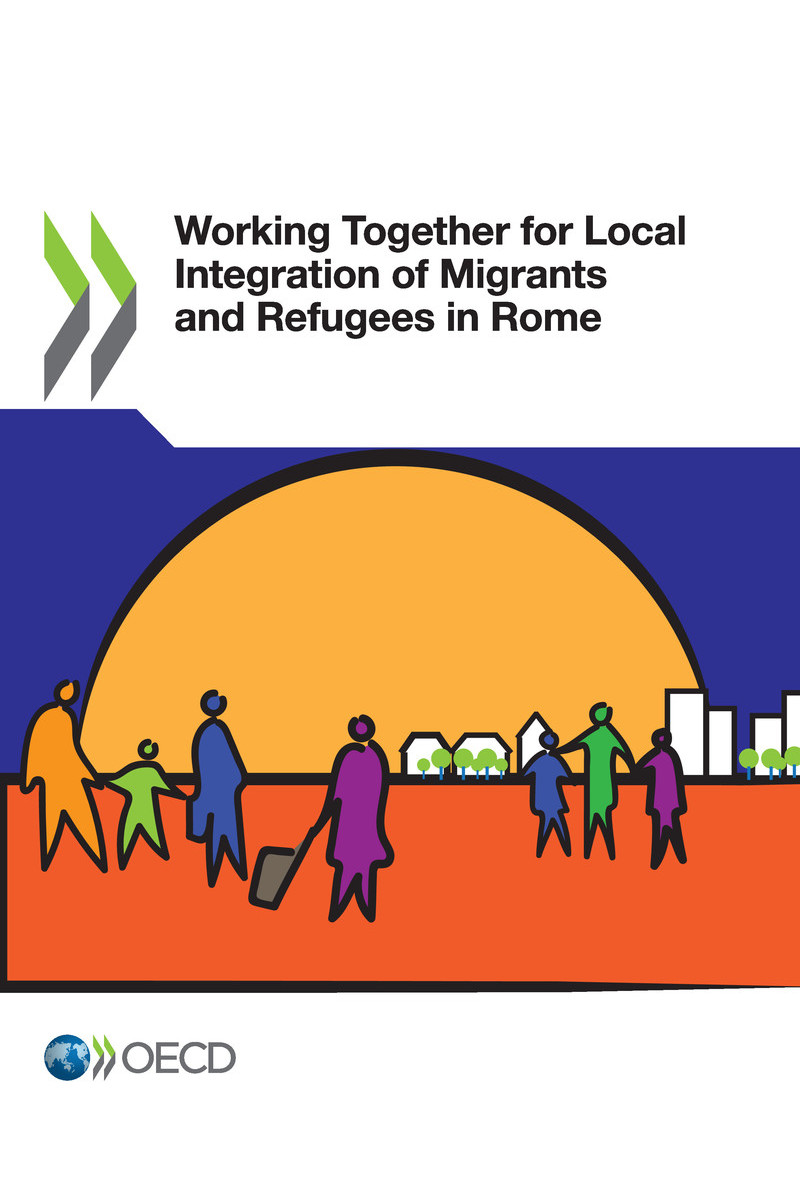
OECD (2019), Working Together for Local Integration of Migrants and Refugees in Rome , OECD Publishing, Paris.
https://doi.org/10.1787/ca4d491e-en
When it comes to migrant integration, the local level matters. Where migrants go and how they integrate into their new communities crucially depends on the specific characteristics of cities and regions. Even though migration policies are often under the responsibility of national governments, the concentration of migrants in cities, and particularly in metropolitan areas, has an impact on the local demand for work, housing, goods and services that local authorities have to manage. Local authorities therefore play a vital role in this integration. Cities can learn from each other and help provide local, regional, national and international policy makers and practitioners with better evidence for policy design related to migrant integration.
This case study Working Together for Local Integration of Migrants and Refugees in Rome provides insight into the citys migrant integration trends and current situation. It applies the OECD Checklist for public action to migrant integration at the local level that is articulated around 4 blocks and 12 objectives. The four blocks cover: 1) institutional and financial settings; 2) time and proximity as keys for migrants and host communities to live together; 3) enabling conditions for policy formulation and implementation; and 4) sectoral policies related to integration: access to the labour market, housing, social welfare and health, and education.
This case study, which is part of a broader OECD-European Union project, entitled A territorial approach to migrant integration: The role of local authorities, addresses a critical knowledge gap on migration issues by analysing the multi-level governance issues of local integration. The project takes stock of multi-level governance frameworks and policies for migrant and refugee integration at the local level in nine large European cities: Amsterdam, Athens, Barcelona, Berlin, Glasgow, Gothenburg, Paris, Rome and Vienna and, thanks to the support of the German Ministry for Economic Affairs and Energy, a small city in Germany (Altena). It also builds on information from these and 61 other European cities, that were collected through a survey and consolidated into a newly created and publicly available statistical database on migrant integration outcomes at regional level. The project looks at updates to the governance mechanisms that cities adopted in the wake of the influx of asylum seekers and refugees that has concerned EU countries since 2015. Conversely, it also investigates opportunities to extend some of the services recently established for newcomers to long-standing migrant groups.
This and the other nine city case studies, along with the synthesis report Working Together for Local Integration of Migrants and Refugees, are outputs of this OECD-European Union initiative contributing to the programme of work of the OECD Regional Development Policy Committee (RDPC), implemented by the Centre for Entrepreneurship, SMEs, Regions and Cities (CFE). They also contribute to the OECD Horizontal Project on Ensuring the effective integration of vulnerable migrant groups, by focusing on improving the integration capacities of the local governments.
This publication Working Together for Local Integration of Migrants and Refugees in Rome was produced by the Centre for Entrepreneurship, SMEs, Regions and Cities (CFE) led by Lamia Kamal-Chaoui, Director. It is part of a wider project A territorial approach to migrant integration: The role of local authorities and an output of an OECD-European Union (EU) initiative contributing to the programme of work of the OECDs Regional Development Policy Committee (RDPC).
Co-ordination of the wider project and this case study was led by Claire Charbit, Head of the Territorial Dialogue and Migration Unit in the CFEs Regional Development and Tourism Division, managed by Alain Dupeyras. This case study was drafted by Anna Piccinni, Policy Analyst (OECD), based on inputs provided by Carlotta Fioretti (Roma Tre University). It also received substantive additional inputs and contributions from Paola Proietti (OECD). This case study benefitted from the comments of other colleagues across the OECD, including in particular from Jonathan Chaloff from the International Migration Division of the Directorate for Employment, Labor and Social Affairs (ELS).
The case study has been produced thanks to the close collaboration of the Municipality of Rome that provided information and organised the OECD fieldwork (March 2017). While some information regarding legislative changes that took place at national level in late 2018 and early 2019 have been updated, this case study does not reflect how these changes may impact reception and integration activities at the local level. The Secretariat would like to express its gratitude to all the participants to the interviews (see page 73) and in particular to the staff of the municipality: Sabina de Luca, Annalisa Gonizzi and Giancarlo De Fazio, who co-ordinated the interaction with the OECD team, and to the Department of Social Policies, Subsidiarity and Health and the Department of Tourism, training and work who provided substantial information. In addition, the OECD would like to thank the national government representatives Flavia Terribile, from the Presidency of the Council of Ministers, who made the study possible and the Directorate General of Immigration and Integration Policies of the Ministry of Labour and Social Policies for their comments.
The Secretariat is especially thankful to the EU Directorate General for Regional and Urban Policy (DG Regio) for the financial contribution and the collaboration throughout the implementation of the project of. In particular, the Secretariat would like to thank Andor Urmos for its guidance during this project.
Font size:
Interval:
Bookmark:
Similar books «Working Together for Local Integration of Migrants and Refugees in Rome»
Look at similar books to Working Together for Local Integration of Migrants and Refugees in Rome. We have selected literature similar in name and meaning in the hope of providing readers with more options to find new, interesting, not yet read works.
Discussion, reviews of the book Working Together for Local Integration of Migrants and Refugees in Rome and just readers' own opinions. Leave your comments, write what you think about the work, its meaning or the main characters. Specify what exactly you liked and what you didn't like, and why you think so.

